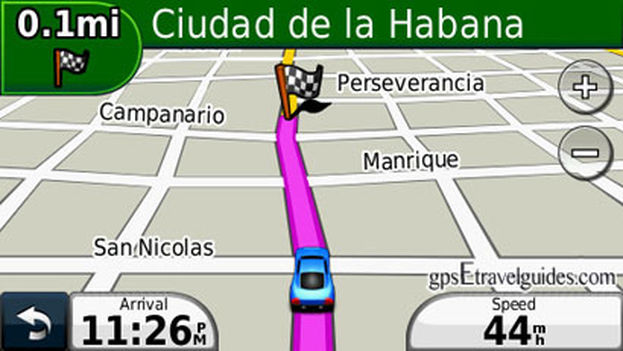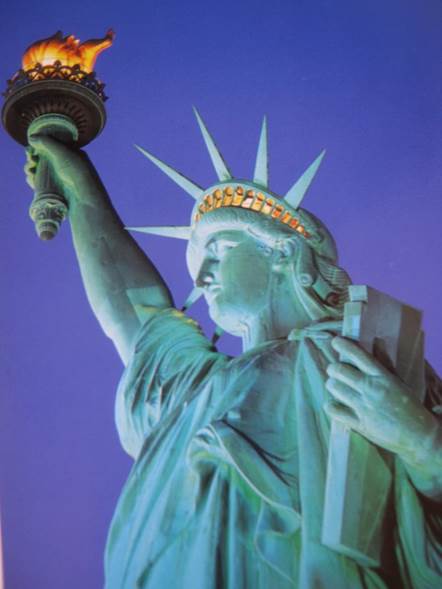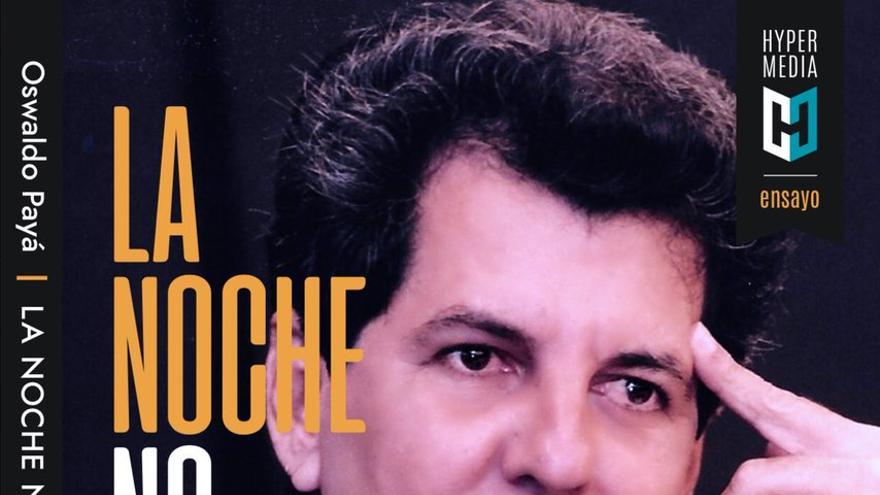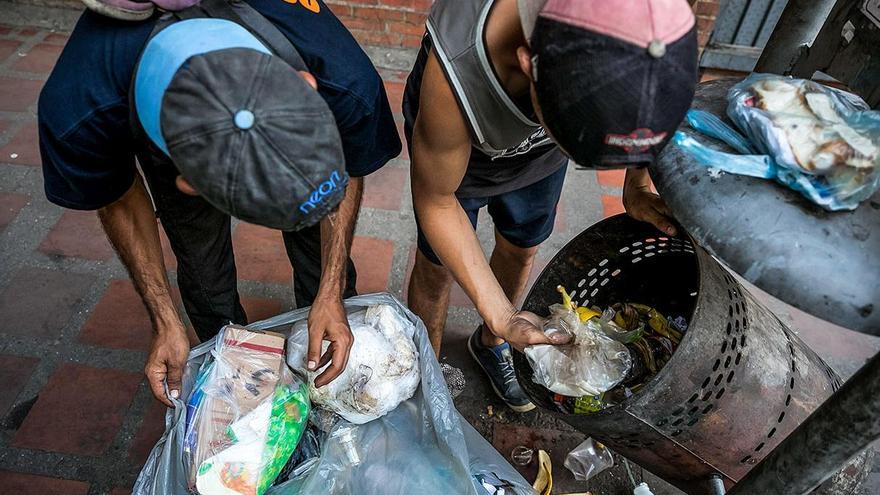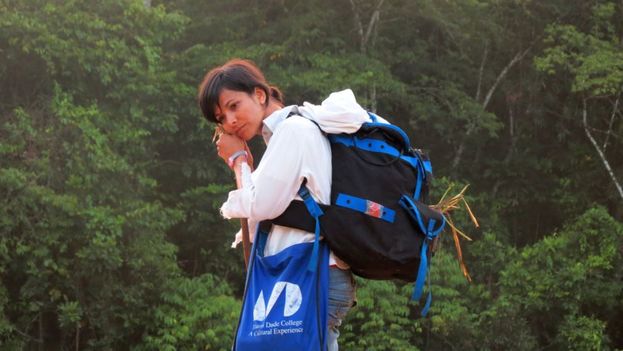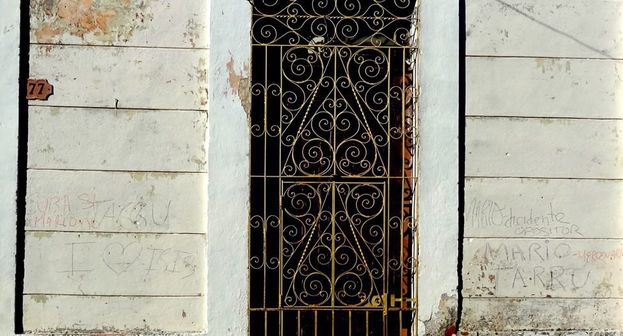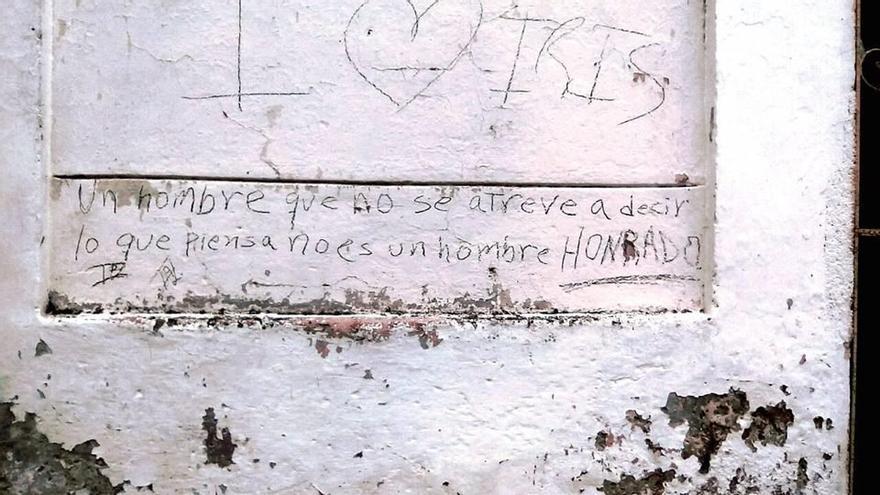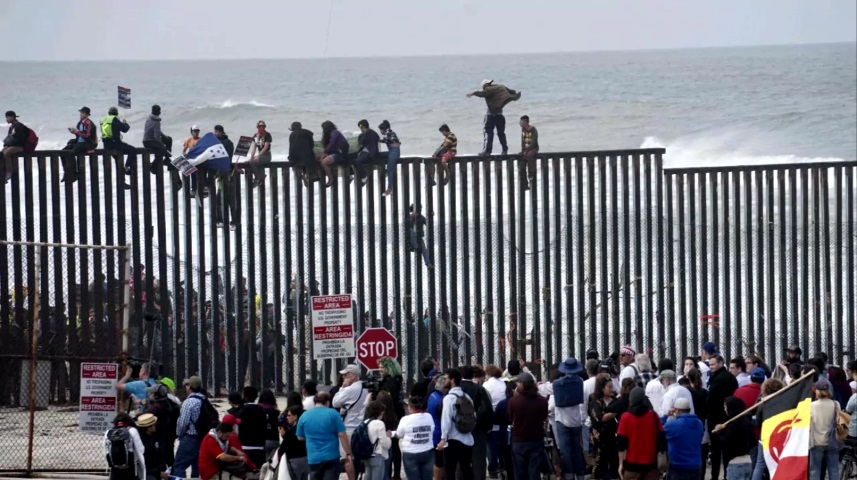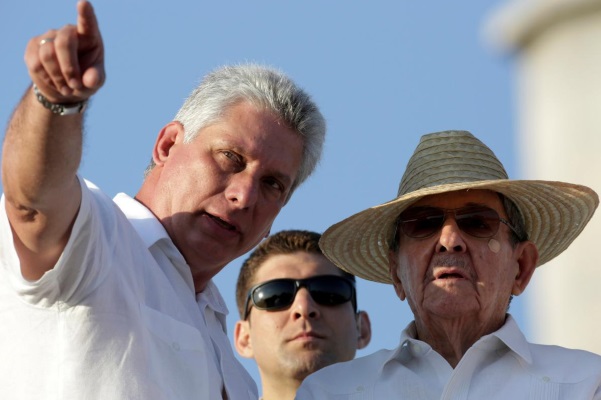Very good evening. How are you doing? Canada orders that the families of Canadian diplomats who have moved to Cuba must return to their country. But the Cuban government, and the official press, is concentrating on the reception of General Raul Castro in Lima, Peru at the American summit. And they are also concentrating on an interesting meeting which – and I am reading this – which is known as the Meeting of the Democratic International Committee of Women which will take place in Pyongyang.
And, to be honest, I see very few connections between the North Korean Republic and the word “democracy”. We will talk about that, and many other things, with the person we have invited today, who is a young Cuban American lady, who, just by mentioning her name, will arouse emotions in all the social media. This is Juan Juan Medio, and we will start in just a minute. continue reading
As I started saying, Canada is withdrawing the families of its diplomatic personnel from Havana for security reasons and rumours have it that they are doing it because of all the commentaries about the supposed sonic attacks and because they are worried about the symptoms being suffered, or that have been suffered, by ten of their officials in Cuba. For that reason they are withdrawing part … well, not part … but the families of their officials in Cuba.
And it’s strange really because – in my opinion, obviously – we have heard a lot about those sonic attacks which took place in Havana, but really, as far as I am concerned, after reading everything, or nearly everything, they have published in the official and unofficial media, I still find it hard to believe the whole story, or at least the story we have been told. Why? Well, because, I think we could have believed it completely in Fidel Castro’s time. Fidel Castro was a man who was reckless and daring.
So, I think that Cuba, at that time, was capable of doing that, and a lot more. But Raul Castro is a different person. Raul Castro, Alejandro Castro, and all that group of people who is now in charge of the country … I feel are very much cowards and I would find it difficult to believe that they could authorise or carry out those sorts of actions. Not just against Canadian diplomats … we know the commercial interests that exist between Cuba and Canada … they are very very important – one of Cuba’s principal commercial partners.
Also, I very much doubt that there was this kind of action against North American diplomats as they say has happened … I personally find it difficult to believe … and really I don’t have all the information … not all the information. But I continue to think that at least the story, as it is, shows an absence of evidence. There are far more questions than answers.
We will be talking about this, and many other matters here with today’s guest, who am delighted to invite to join me here now, and introduce her properly, as God would expect, and as she deserves.
Yadira Escobar (YE)
Hi
JJ
Welcome. How are you?
YE
Very well
JJ
A great pleasure to be with you and first of all of course to ask how you are … apart from the obvious, that you are a very beautiful woman … obviously very well. But, the rhetorical question … how are you?
YE
A pleasure to meet you in person. Very happy to be here with the Diario de las Americas … and let’s see …
JJ
Your first time here?
YE
Yes, yes …
JJ
The first thing I would like to know … I have seen many of your videos in the social networks … they are practically viral … and I’d like to know … is it a performance, a personality you have which you are trying to put over, or are you … or were you …the person we have seen in the social media. What difference is there between you and the person in the social media?
YE
Well, the difference is not what I make. The only difference is between what I am and what some malicious people describe. The difference is that you publish your creative material… not the image that some malicious people .. in the networks people maliciously … there is in Miami an attempt to destroy some peoples’ reputations and they in fact put obstacles in your path.
JJ
(Laughs) Obstacles in your path! The first time I saw you in the social media was in a video which was … if my memory serves me correctly … dressed like Flash, with a gun in your hand falling behind some trees, or something like that.
YE
Yes
JJ
And shooting at a teddy bear. And later I saw you in another video, similar to that, dressed as a soldier in olive green with a military helmet. And that was a big contrast with your appearance in another, when you were speaking out against arms. This confuses me a bit when I try to define you as a person.
YE
Let’s put in a … whatever you like …whatever compartment you fancy …
JJ
I am not wanting to compartmentalise anyone. But I’d like to know are you in favour of armed struggle, or against armed struggle … because at first you spoke well as a soldier … how do you position yourself?
YE
I am against violence. What happens is that we are used to the social networks and propaganda and violence in popular culture. I am saying that the emotion is so strong about putting an end to all the violence that exists in this planet. And I condemn any form, any manifestation of violence. So I say to you that to put an end to violence you have to have strength. Because, to be quite honest, smoking marihuana on the beach, a hippy with a flower, will not end violence.
JJ
Well, in a sense it will …
YE
It’s a fantasy in your imagination. You have to take a position in your community in favour of good, in favour of peace, in favour of love, of beautiful things … which are very scarce … you know, to interrupt you, … the video of the helmet is not a uniform … it was with a Guess brand shirt … the men love me in olive green …my brother says the shirt is a man’s shirt.
JJ
It looks very good on you
YE
Thank you The video I made which, sincerely, deals with the effort we need to make to promote peace.
JJ
So its nothing of the olive green or the intention to show the symbolism that many people would assume … you see it in Havana
YE
… and on safari in Africa …
JJ
But anyway … when did you leave Cuba?
YE
I was 6. In ’94. And I would have arrived in Miami before ’94, if a certain official – Montero – had not kept my family for four years … and do you know what was the worst thing? The official Montero offered my father a proposal. Pay me and I will give you the white card (which permits you to leave Cuba).
JJ
Corrupt
YE
And do you know what was the most tragic part of the story? My father didn’t pay him … it could have been a trap.
JJ
Definitely
YE
My father didn’t pay but in the end we left Cuba … the worst part of this story of an example of corruption and abuse of power is that this official went himself to the United States – I don’t know whether he is in New York, or Tampa, or wherever, but he is living in the US. The people who do the most damage … I tell you … the worst is not to be a communist … but to be a repentant communist. It’s a disaster … with their uniforms, they say they will do what they want. They have their privileges. They get their social security cheque when they have never contributed anything to society.
JJ
It’s an interesting question. You went back to Cuba after you left?
YE
After 15 years … you go, after a while you go back … a political refugee … when we left Cuba we left with pain in our souls … that my last night there in ’94 …
JJ
How do you remember your departure from Cuba?
YE
Traumatic. Traumatic. I also think it was a miracle because we were country folk from Camagüey against Havana, in the Special Period. You go in the middle of the night with your suitcases. We got in the bus …a magic thing. That night, we slept by the Havana airport entrance on the floor in the night until early morning, because we could not risk missing the flight
JJ
You did it, or you would have nothing … there was just one flight.
YE
I woke up, I saw we were outside, I saw people were coming , I cried. I said look at El Moro (famous castle on the route to Havana) – it will be the last thing you will see in Cuba.
JJ
Because you went on the highway to get to the airport. Just asking, because El Moro is a little way from the airport.
YE
Yes. When we were in the plane, I looked through the window I said, I can’t look. I was saying goodbye to my grandparents. So, when we got here, in 2000, when I said we had gone, I heard stories … the kid came from Havana and went back again. What?! Went back?! How did I go back again? Are you mad? mad?! A communist!
JJ
Yeah, right – everyone who goes back is a communist! You had every right to go back. Its your country. Your country didn’t support or welcome you but we are Cubans, and we can return.
YE
It’s a fight. How can you continue with the fight? How will the country improve?
JJ
Quite right – it’s a struggle. You know what caught my attention when you said it, and now I think of it some more … When you said you were a country girl from Camagüey. When I met him in the lift and I asked you father back there which part of Cuba are you from? He didn’t look like a country person from Camagüey. More like someone from Paris. But you say “we are from Camagüey” …
YE
Look …he is very proud that he is a country person.
JJ
But not a rural person from Camaguay.
YE
No, of course, I am not just a country girl from Camagüey, I am from La Avenida de los Martires (a relatively nice address), but I am in constant contact. Like things produced on the farm, cheese, milk, all kinds of products, so I am continually in contact with the farmland.
JJ
Now, finally, have you returned to Cuba?
YE
Few times. After 15 years of exile, Fidel goes, Raul comes. One of my grandparents had died, the other not in good health …
JJ
In 2006 …
YE
It was in 2008. After 15 years, without any fantasy of a plan for going back. In 2008, the was no Fidel Castro. My father had problems. But it is better to reunite with your family than be trapped in fear. My grandfather died in the end … and we couldn’t go there every three years … and we went in 2008. I was pleased. We had left a Cuba which no longer existed In 2013 we could see the difference. in 2008 we went to a little place deep in the heart of Cuba. And we got there in a rented car.
JJ
When you went back to Cuba … from my point of view, there are many different Cubas. There are many Cubas.
YE
Yes, that’s true
JJ
There are many Cubas. The Cuba that many intellectuals visualise or try to see or talk about. There is another Cuba that the tourists see. There is another Cuba that the opposition and the dissidents see. Another that we see. That the musicians see. There are many Cubas for different people to see. There are many positions from which to view our country. But which is the Cuba which you see, or have seen, when you go?
YE
The Cuba I have seen … the first time I visited it in 2008 after 15 years of seeing the Yuma (meaning the United States) with the perfumes, the colours, the plastic … because the US has a beautiful attractive face … when I went in 2008 the first thing that hit me was … I know that making comparisons with other countries in the world isn’t right … it has its ecosystem, its work, it has vaccines, the people don’t fall dead in the street.
JJ
They are still poor, but in good health.
YE
Yes. They are poor and they are still poor … Yes they survive but what impressed me was seeing this poverty … and I cried, I was crying … I am obsessed with the theme of Cuba because I love it. In the night I met a friend of mine in Havana. I took a photo of a farm in Cuba and it got to my heart. A little indistinct photo of my palm trees. It touched my heart. I tell you … the most precious thing that we have is our island, with all its problems … what we have to do is improve it.
JJ
The palms that I love. But i sometimes think that you are idealising a bit. This image of Cuba … when I left Cuba, I did something illegal. What I did first, I went in a bus from the province of Granma. I was looking at all the Cuban countryside … the pines, the palm trees, and I was moved by nostalgia … I knew i would not return. I looked at the palms with lots of nostalgia thinking i will never again return, will never again see the palms, and when I arrived here I saw there are more palms here than in Cuba and they are more beautiful too.
YE
More beautiful? More beautiful than in Cuba?!
JJ
Yes when you go to a hotel like the Breakers in Palm Beach … the palms are beautiful
YE
But they are foreign palms … come on!
JJ
If there were not many things, but one thing which, with certain changes you would leave as it is, what is that?
YE
To preserve … I like security … I like that my grandparents can walk in the street without having to worry and walk normally. Cuba is a third world country. I can’t say that Cuba is a safe country for my grandparents … I would like more security. Cuban security is in danger
JJ
You think that Cuba is that insecure?
YE
You can’t compare …
JJ
Compare with what?
YE
No, without making comparisons … you can’t compare today’s Cuba with yesterday’s in terms of security. Because now with a bigger dose of capitalism, and a greater inequality, people can’t walk with iPhones, with … there is a privileged class in Cuba and a class …
JJ
There always was.
YE
Yes, but … more exhibitionist.
JJ
Well one thing about Raul Castro is that he allowed the doors to open.
YE
And he wants more.
JJ
Of course. Everyone wants more.
YE
They want more. They are trying to create a type of underworld in which … I don’t want to defend it, but … I want the day to arrive that the marginalisation caused by lack of education, with no chance to escape, comes to an end. I think that the most vital thing is that every Cuban has at least one chance in their life … to move forward. That the poor person gets a chance to go to university or he will remain there, stuck in the mud.
JJ
The press, or many people in the social networks, make a big thing out of the violence in Cuba. But really I don’t know about that many cases of violence in Cuba. And the press in Cuba report many cases of violence. But really there are only a few.
YE
There are few but these few cases may be a signal of something which is coming. You have to think not just of the country you come to but where are you going with that. I am not going to watch the culture of the barrios with the “what nice chicks” and all that. And that is why i am against arms, because the worst would be to introduce arms into Cuba. Now the gangs, the kids, inoffensive because they only have little knives … that they should be armed, go around armed like the ones in Mexico.
JJ
No no I don’t think that will happen. First because they don’t have arms. The police do … but put arms in the hands of the people … from the retired military people or could be some stores that they have robbed … and they end up in the hands of people who shouldn’t have them. But I don’t see many arms in Cuba … or much violence. But lately more arms to do with drugs which could to lead to more violence.
YE
Something that i would definitely take away is the limitation … this prison without bars … the inability of the civil society to form groups. Because there are people who don’t want to form political groups, like for example a group that was mentioned to me to protect animal rights and have nothing to do with the state … but it is on the margins of illegality
JJ
There are groups …
YE
Yes there are some which have no connection with the state, but, once again, they are not protected by the law because it is prohibited. I think that should be permitted because the civil society each time gets more legal spaces to express itself vigorously.
JJ
Definitely. I think that if something would change … radical …it is the law, the constitution. The Law of Civil Association permits prisons … the Law on Investment, Business Law … all that … all … to change the constitution. I think, in my opinion. But do you think that, Yadira, with your knowledge and the experience you have now, if it would be useful, or if you would like to participate in politics in Cuba, in a position in the government?
YE
Well, one thing is the future, because, right now that isn’t possible.
JJ
No, no, but hypothetically … in a future Cuba …
YE
I don’t know … I am not resident of Cuba …
JJ
Well suppose you went back …
YE
Obviously i would like to participate in a future Cuba. In politics, because I think that … I was not brought up in the United States … in a Cuban community … here you are seen as communist exiles … they say yes, I fled Cuba, … syndicalists, marxists reds, … but I am in Calle Ocho with them … and therefore I say that I don”t want to break the laws of etiquette … but it seems to me that i could help, because I am a nationalist, a centrist nationalist, who brings at least a little inspiration to raise Cuban dignity, a bit. I think i could help. we will have to wait and see if they open a space for people like me who have this interest.
JJ
And you would like that?
YE
Yes, I certainly would.
JJ
In everything we have seen of you … that has been demonstrated … as a dissident, or member of the opposition … how to you see the possibilities of representing a particular group of Cubans? What do you think is the possibility of leading a group … something political?
YE
Right. I don’t know if you should call them dissidents. I mean, if I have a complaint the people say that it’s a dissident … but the people who have most impressed me … I have said … are not from the government, with no connection with the government … you are a Cuban, 100% clean … you defend your honesty … but you know, they are not exactly well known. They aren’t people … I shouldn’t say their names, because they have not taken me into their confidence. They are young people. They have their complaints, their criticisms, but have not lost their sense of Cubanism and they say to you I want this for Cuba … more or less what they want, their nationalism, not to break the social order, in order to start over again from zero. Life is short, take what is theirs, working to a certain extent, and improve it. To improve things as best they can, to improve the economy, it wont be the best politics in the world, the economy is broke.
JJ
But, but, but …
YE
But they are all similar, Juan,
JJ
What I see personally … me … me… in my opinion … I don’t see in any of them … again, I repeat , in my opinion, I have not seen a project which produces anything. The housewife working in her house who says “ok i will do that but what is in it for me?
YE
Yes. suspicious of an imaginary collective which comes up with a deluge of complaints with no platform at all. You know why they have no platform? Because they have no proposals.
JJ
I don’t know them …
YE
I would say what they are proposing … they criticise the embargo … but their discussion is not about the embargo, it is …. I have heard this since I was a child and it is something in Miami and doesn’t produce any result … except to annoy them over there. However much we have here and however much we want change in Cuba … and we love Cuba … there are 11 million people who can collectively go up the mountains. The people aren’t stupid. They are you and me. They are normal people. If Cubans want to change the way things are, they will do it.
JJ
Would you like to take charge of the people?
YE
I am not the Trump of Hialeah … I don’t want to inherit from Fidel Castro and nor to I like Donald Trump, and I want … to serve you, the people. To be a representative. You are sovereign … all of you, the 11 millions, really have the power … they remain neutral re: their agendas.
JJ
The platform of Rosa Maria Paya who talks about a plebiscite … that there should be a plebiscite … I don’t see how they could implement that. But, the intention seems very laudable and it seems she speaks well and that Cubans could decide for themselves …
YE
Look, regarding La Paya and her father, these kind of people are trying to get signatures … to become an opposition accepted by the state. But the reality is they always have to make their proposals … their reasonable demands, and definitely annoying other opposition groups. But I don’t think Miami would vote for Paya and her people. I don’t think that people in Miami would be allowed to vote, because they always have to put their proposal and reasonable demands. Want to put the opposition to one side. The most irrational event would be a plebiscite. Because …
JJ
They can legitimise them there, but i think that a good option would be that I could say I do not agree that they are legalised and I have the possibility or option to vote against you and say I don’t want to go there . That seems to me probable . If you want for your own reasons to gather signatures to get into Cuban politics …ok, but I don’t want to get into that because unfortunately there is nowhere in the world where politics is carried out in the street. Yes, proselytising, but politics happens in parliament and you have to get in there to speak up there in the name of a particular group in the community. In my personal opinion I don’t like the word “help”. The cuban exiles need representatives in the Cuban parliament … and why not?
YE
Obviously. the Cuban parliament should have space for those who don’t agree. In any parliament there needs to be a dissident voice. But, to get into Cuban politics and to do things which affect 11 million people … to have a lot of power … to get into the assembly, to get into government …
JJ
you could get in …
YE
… no I can’t get in …
JJ
you were modelling in front of the Capitolio … very beautiful, very beautiful …
YE
Yes, that has to do with returning to my previous image …
jj
Going out of the Convention Centre, which is ugly, going to the Plaza de la Revolucion to the seat of the Assembly, which is also hideous, and going to the Capitolio which is a beautiful building …
YE
Yes yes yes, but for those people …
JJ
you could have the palms as well
YE
Ha ha yes wearing a palm brooch … for this opposition to get into the assembly I think there has to be a minimum requirement … with finance from another power …
JJ
For me personally, I don’t like it very much.
YE
Obviously
JJ
It sounds small town. It seems it doesn’t transcend other cultures which have been very nationalist … Hitler for example … in Germany at that time …
YE
laughs
JJ
No, I am not comparing Cuba with that … there is no way that I could disrespect the Jews like that … impossible …
YE
There would be no genocide like that
JJ
No, no, … I am not into comparing Fidel Castro with Hitler – nothing like that. But i think that nationalism stays, remains, very provincial … and we are more than that … we are in a global world … we are not just Cubans – although they have robbed us of that many times … but also Caribbean people, Latin Americans ..lots of things … 39:37:13
Translated by GH

![]() 14YMEDIO, Havana, July 20, 20108–Another interruption in Cuba’s Nauta email and Internet services left thousands of users without communication on Friday. The failure is the second in less than three weeks that affected several official digital sites, like the newspaper Granma, the national email Nauta, and the WIFI zones of Internet connection, according to 14ymedio.
14YMEDIO, Havana, July 20, 20108–Another interruption in Cuba’s Nauta email and Internet services left thousands of users without communication on Friday. The failure is the second in less than three weeks that affected several official digital sites, like the newspaper Granma, the national email Nauta, and the WIFI zones of Internet connection, according to 14ymedio.
